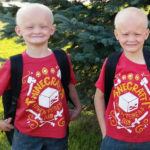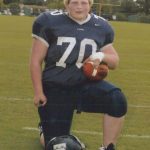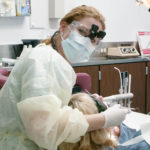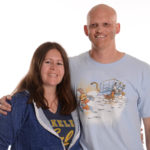The good news is that you can expect for you or your child to have a wonderful quality of life. An ectodermal dysplasia diagnosis doesn’t have to change that. The journey may not be the one you envisioned but it can still be a wonderful one!
Intellectual Development

Regardless of what you may have heard or read, there is usually no reason to expect anything but normal intelligence with ectodermal dysplasia. However, some of the extremely rare forms have been associated with cognitive impairment or learning problems. This may be evident very early, possibly even at birth. That being said, intelligence is normal in the vast majority of the ectodermal dysplasias.
A study we funded, Psychoeducational Characteristics of Children with Hypohidrotic Ectodermal Dysplasia, found that children with HED performed similarly to children without an ectodermal dysplasia in all measures of intelligence, academic achievement and adaptive skills. The study results did indicate some increased risk for attention deficit disorder, although the data was not sufficient to make this conclusion.
The School Years

As a parent, you will want to be proactive in setting the stage for your child’s success. Assuring that your child’s school experiences are as positive as possible is key to that success. Teachers sometimes wrongfully assume that a handicapped or unusual looking child is less bright or less capable than non-handicapped peers. This is often due to a lack of information, information which you can supply. You should educate your child’s teachers, coaches, classmates and others at the school.
There are different ways you can tell your child’s classmates depending on their age. Some parents have found using M&Ms to teach about ectodermal dysplasia to be helpful. In other situations, the child has found power in telling classmates. We have many resources to help you advocate for your child with ectodermal dysplasia at school.
Download Our School PacketTeasing and Bullying
Children tease because it can be a fun way to provoke a reaction in someone else, and they may want to reciprocate being teased themselves. Teasing can strengthen a relationship by showing closeness and affection with another person.
Teasing is positive when:
- It takes place within a strong relationship with two people who appreciate the teasing as affectionate.
- The teaser is using a “joking” (rather than aggressive) tone of voice and smiling.
- The person being teased does not look distressed.
It may start out as innocent play, but when teasing is used to alienate, criticize, or embarrass a person, it becomes bullying. We all know that bullying is a huge problem for our children.
According to StopBullying.gov, bullying is unwanted, aggressive behavior among school-aged children that involves a real or perceived power imbalance. The behavior is repeated, or has the potential to be repeated, over time. Both kids who are bullied and who bully others may have serious, lasting problems.
Bullying can be a problem for all children, but may be more so for children who “look” different or have a visible disorder or syndrome, such as many of the ectodermal dysplasias. All parents need to be proactive and prepared to deal with bullying. StopBullying.gov offers wonderful resources.
Articles on Responding to Bullying from Our Library
Sports

Yes, you can have ectodermal dysplasia and play sports. Although, you may need to take certain precautions, especially if you’re unable to sweat. We have plenty of evidence of people who have successfully participated in athletics including football, basketball, baseball, track, soccer, gymnastics, swimming, martial arts, bowling, etc. We know of one young man with EEC who played football despite having just a few fingers on each hand.
Allow children to try various activities. It enables them to learn whether or not they like the sport, how to accommodate their inability to perspire, and when to acknowledge that some activities may require more than their bodies can comfortably deliver.
Jacobi plays 3 to 4 sports a year. He has never let the ability to not sweat stop him from doing what he loves. It’s been challenging many times to keep him cool, but we, as a family, are learning as he gets older to control it better. We carry a cooler with all his cooling gear to all his events and are constantly switching them out and keeping him hydrated. – Franki
One of the keys to these athletes’ participation and success was learning to adapt. You can help them by being prepared for cooling when they overheat. Water, water, water! Talk to the coaches so they understand the issues. Modify any equipment (i.e. baseball gloves) to accommodate missing fingers. Adaptations like these can help you or your child enjoy any sport.
Discover great cooling techniques by reading Hypohidrosis: How To Stay Cool When You Can’t Sweat.
Careers

Adults affected by ectodermal dysplasias are employed in a wide range of jobs, including jobs which we might not ordinarily consider for people with heat intolerance, such as firefighting. Occupational advancement is limited as much by education, ability and training as it is for all persons. These factors may well be more important than the disorder itself. Therefore, the best insurance is a good education, ideally one in which you participate in the normal classroom experience and activities.
Family Perspective
- Ectodermal Dysplasias in the Workplace
- My Life Is Calling
- Career Reflections by Terri Andrews
- Career Reflections by Tyler Brown
Relationships

Like all genetic disorders, ectodermal dysplasias will impact one’s psychological and social well-being. Don’t let ectodermal dysplasia stop you from being surrounded by family and friends, and those who love you. Fostering healthy relationships, both new and old, will help you maintain a healthy psychological and social well-being. Evidence supports the people that surround us make us happy and healthy.
Honesty is the best policy. Trust your family, close friends and significant others with your feelings and concerns. They will help you through the difficult times and celebrate the great times each step of the way.
Learn more about how to tell your partner about ectodermal dysplasia.
Global Genes offers resources that are not specific to ectodermal dysplasia but do apply. They have content for dating, when to tell your date about your rare disorder, and how issues women affected by rare disorders face during their reproductive years.